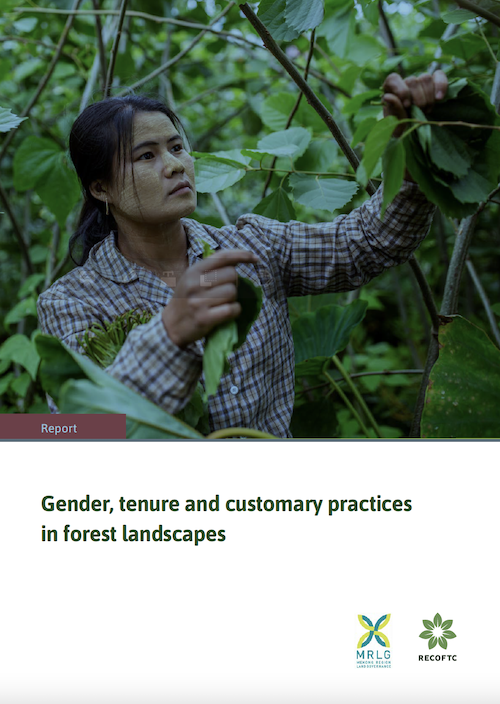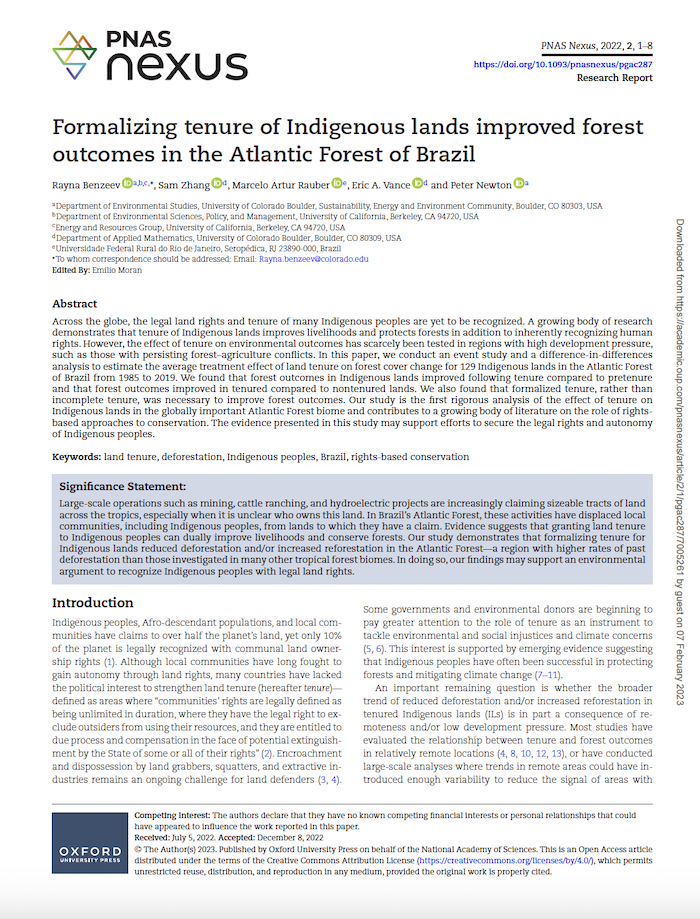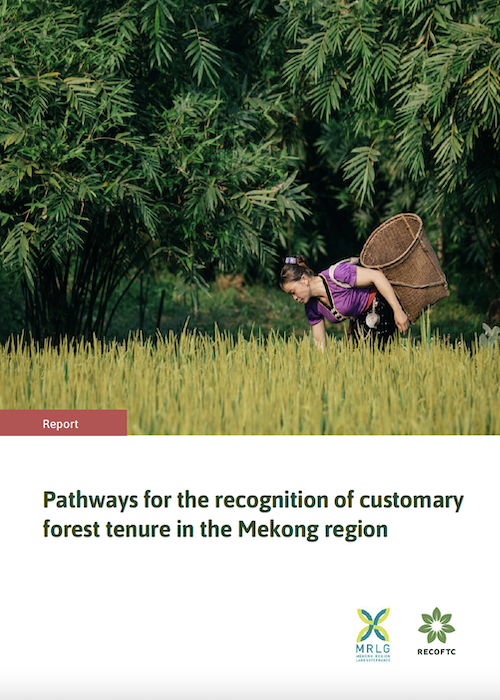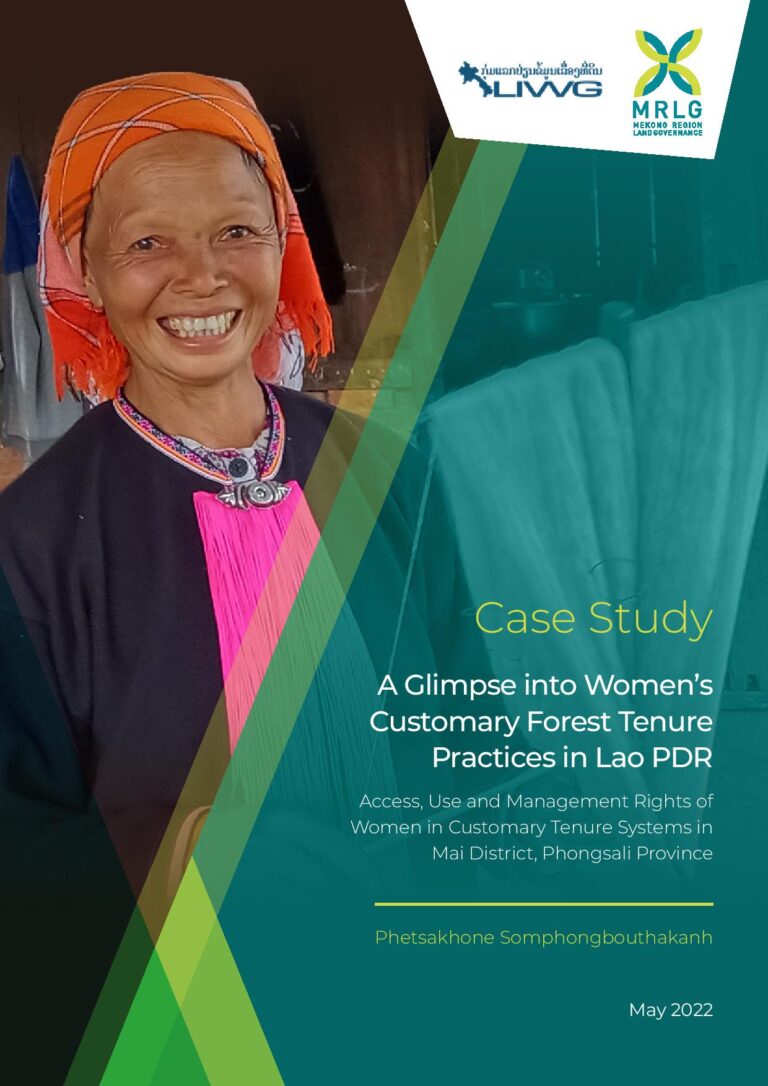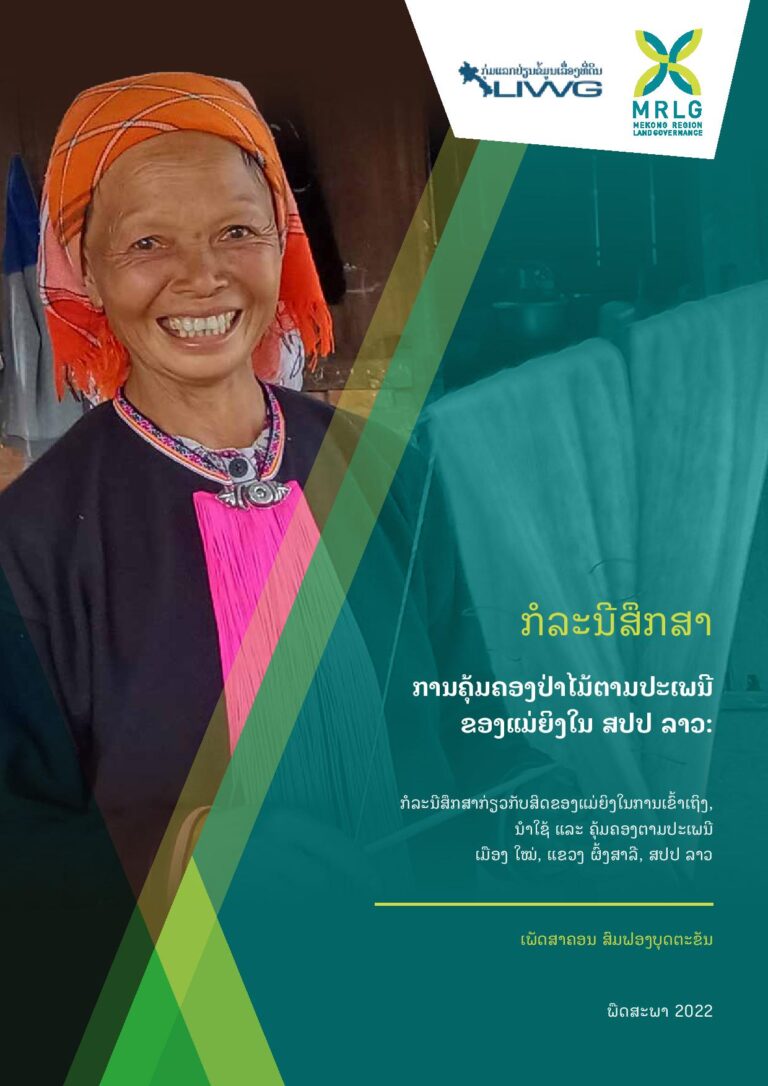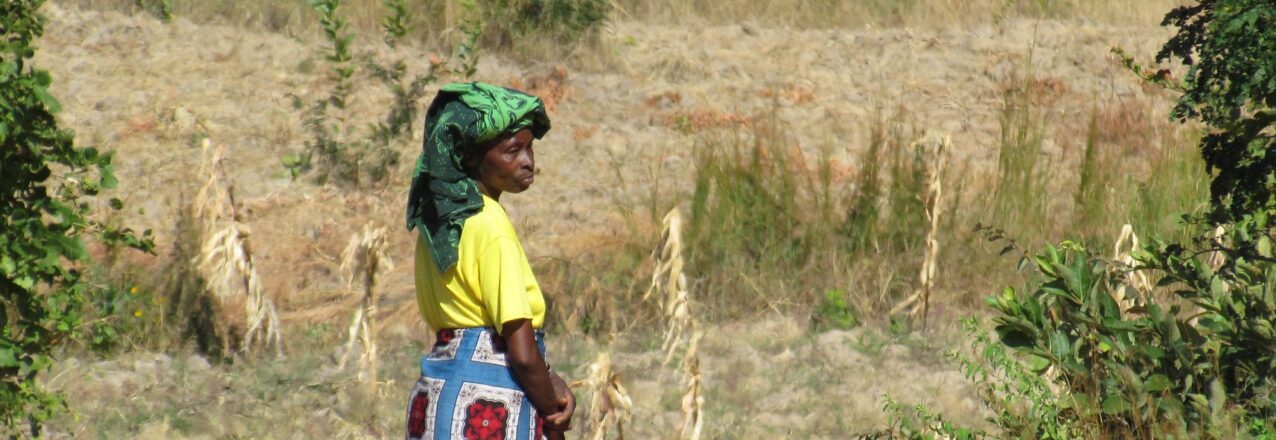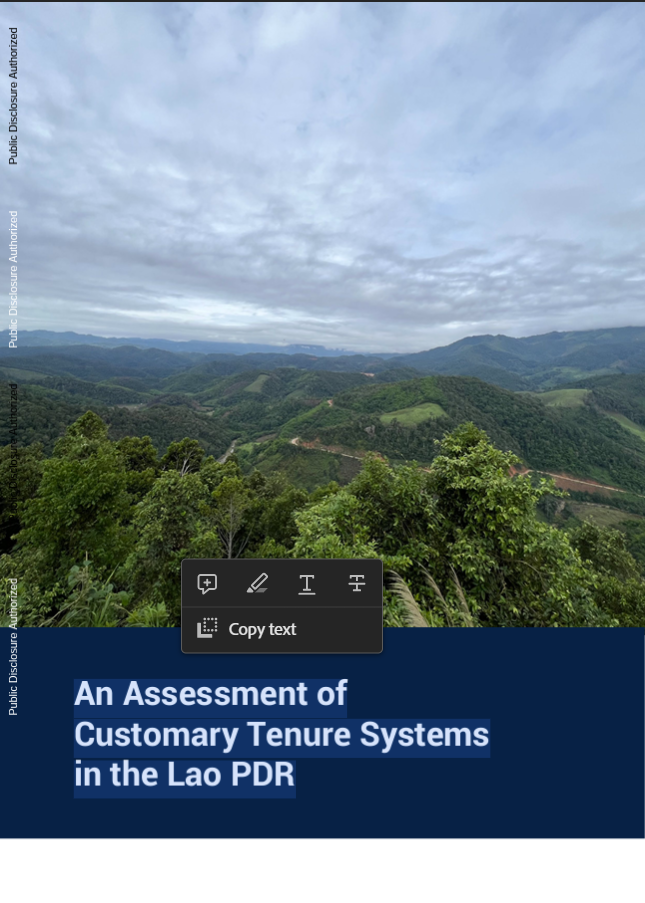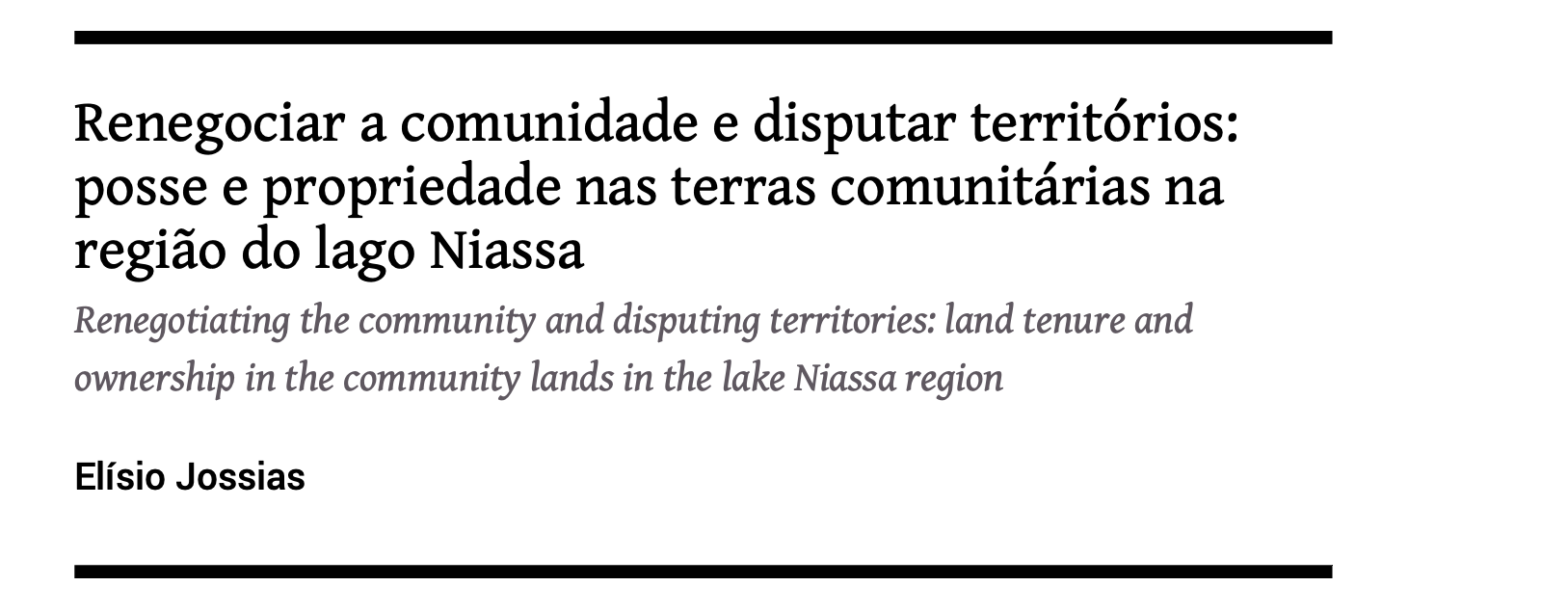Gender, tenure and customary practices in forest landscapes
This report is based on 10 research projects carried out in 18 sites in seven countries: Cambodia, Indonesia, Lao PDR, Myanmar, Nepal, Thailand and Viet Nam. The studies formed the basis of ten informational briefs from the research sites published together with the report (available here: https://www.recoftc.org/publications/0000432). Each study documented the legal frameworks and customary practices that affect indigenous women’s rights to access and manage forest resources and create restrictions on those rights.

